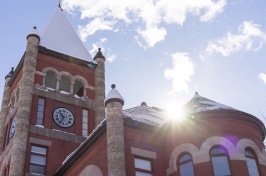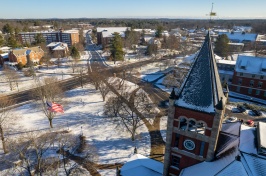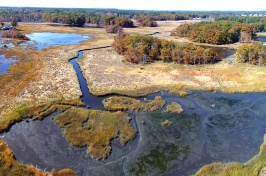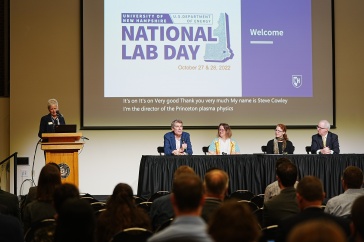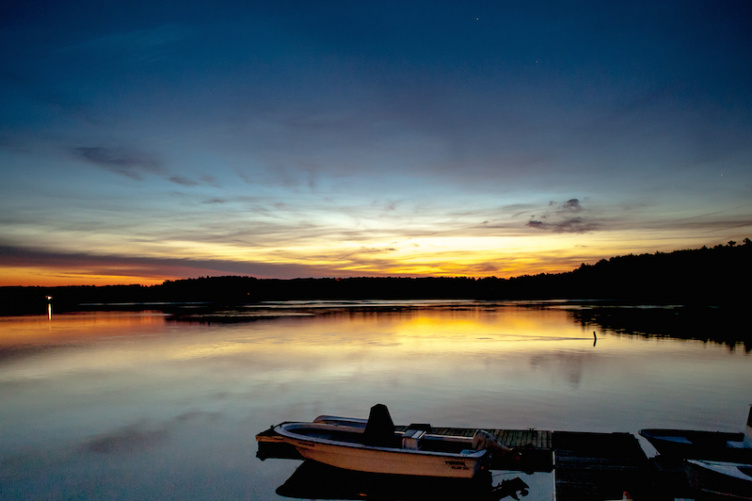
Sunrise over Great Bay, from UNH's Jackson Estuarine Laboratory at Adams Point. Photo by Lisa Nugent.
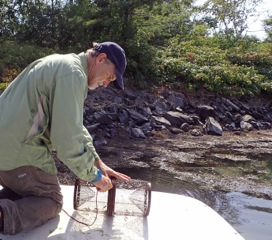
This National Estuaries Week is a fitting time to shine a light on the work of estuary champion David Burdick, interim director of UNH’s Jackson Estuarine Laboratory.
Burdick, who is also a research associate professor of natural resources and the environment, recently served on a National Academy of Sciences panel that recommended best practices for monitoring and evaluating ecological restoration activities in the wake of the Deepwater Horizon oil spill in the Gulf of Mexico.
"The recent damage caused by the Deep Water Horizon oil spill provides an unprecedented opportunity for restoration of these habitats in the Gulf.”
“Overuse and exploitation have severely degraded a majority of coastal habitats,” Burdick says. “The recent damage caused by the Deep Water Horizon oil spill has had further impacts but also provides an unprecedented opportunity for restoration of these habitats in the Gulf.”
The report establishes the need for a coordinated effort to assess the performance of restoration projects and programs, Burdick says, adding, “Our committee recognized the difficult challenge in convincing project funders to require rigorous monitoring plans that will demonstrate transparent use of funds and progress toward project objectives.”
Burdick brought 25 years of experience in coastal habitat restoration and assessment to the committee. His primary research is on the management and ecology of tidal marshes and wetlands.
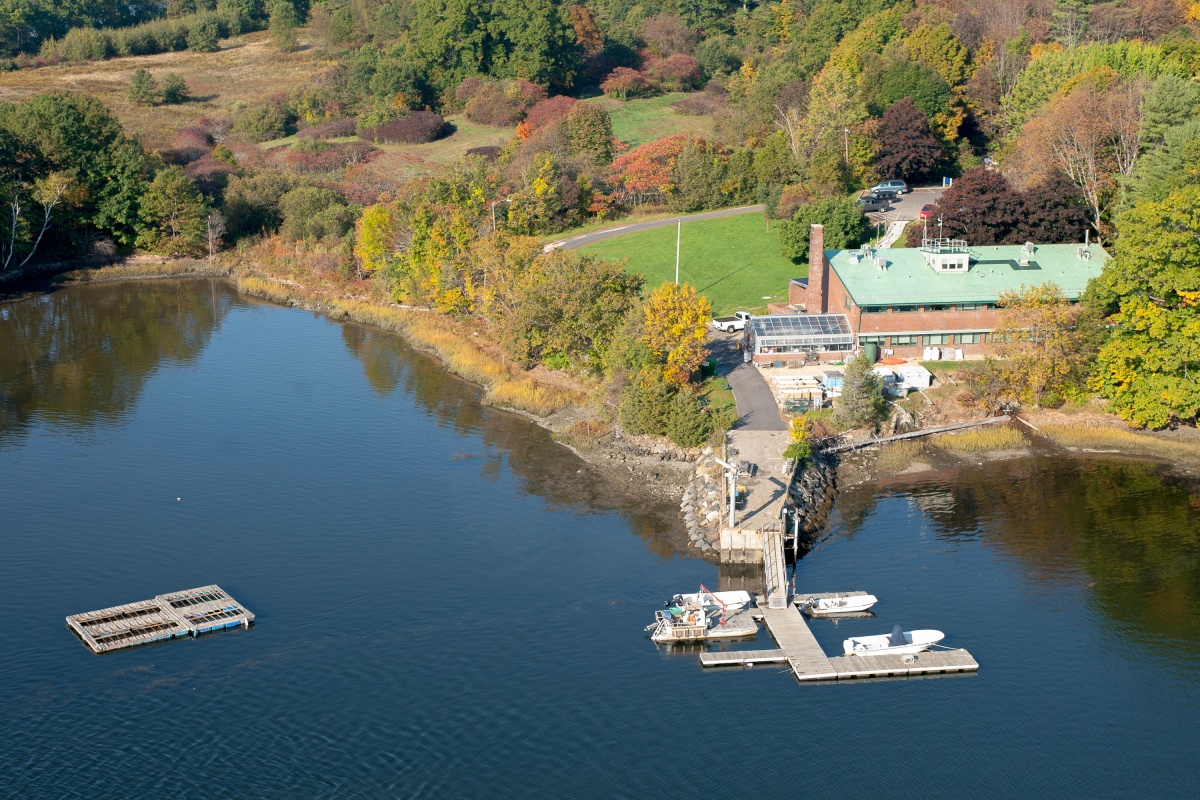
-
Written By:
Beth Potier | UNH Marketing | beth.potier@unh.edu | 2-1566











